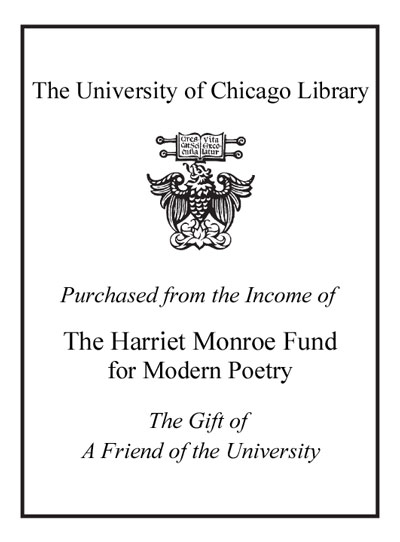Review by New York Times Review
Alcala's third book feels like the opposite of Kempf's first. He wrote a clear, fluent collection largely about men; she uses empty spaces, hesitations and semantic difficulties to address mothers and daughters, herself as mother and herself as daughter, and the messy emotions and miscommunications that move between languages (in her case, English and Spanish), as well as between and within female bodies, in breastfeeding, menstruation, giving birth. Alcala's short, wry lines, self-interruptions and open spaces remind us how little precedent there is for honest writing on these topics, compared with the epic traditions of fathers and sons. Her overall mood remains haltingly elegiac, with quips, false starts and white space, though she can also deploy irony to point up injustice, as in the prose poem "Voice Activation": "Luckily, 1 have no accent and you can understand perfectly what 1 am saying to you." Her circumlocutions can point back to the avant-garde community within which Alcala's early work grew, seeking a style that "isn't meant / to be sold / or bought." Elsewhere she is pellucid, as well as laconic, and might make you cry: "Three times on Saturday / 1 remember you / as dead, / mamá. / 1 reach under / my shirt / surprised / to find / the nipple dry."
Copyright (c) The New York Times Company [November 12, 2017]
Review by Publisher's Weekly Review
Alcalá (Undocumentaries) reminds readers how much a spoken tongue shapes its speaker, in an emotionally intelligent second collection that addresses language and lineage as well as mothers and daughters. Rendering well the vivaciousness of a living language, Alcalá weaves references throughout: Mallarmé, Meryl Streep, Bernadette Mayer, classical art. These references are part of a search for a definable lineage: "We prick each finger,/ smear two glass slides,/ and place them/ on a text called the future." In "Dear María," Alcalá pays homage to the countless women who've borne that name-women whose lives and stories have been co-opted by nearly every corner of culture. "Dear Sacrificial Virgins,/ of red or blond hair/ of dark brunette," she writes. "Blessed art thou,/ your blood is/ on everything." The book's strongest poems feature a guiding speaker, but even in the long poem "Projection" the evocative fragments build into a critique of money and class. These are poems full of duality-English is simultaneously an interloper and a lover: "English had a hooptie/ that was the joint. Now my mother goes gaga/ over our cute babies." Throughout, the mother figure is both missing (the speaker's own mother) and present (the speaker is a mother). Alcalá offers much to like in a text that both nourishes and devastates. (Jan.) © Copyright PWxyz, LLC. All rights reserved.
(c) Copyright PWxyz, LLC. All rights reserved
Review by New York Times Review
Review by Publisher's Weekly Review

